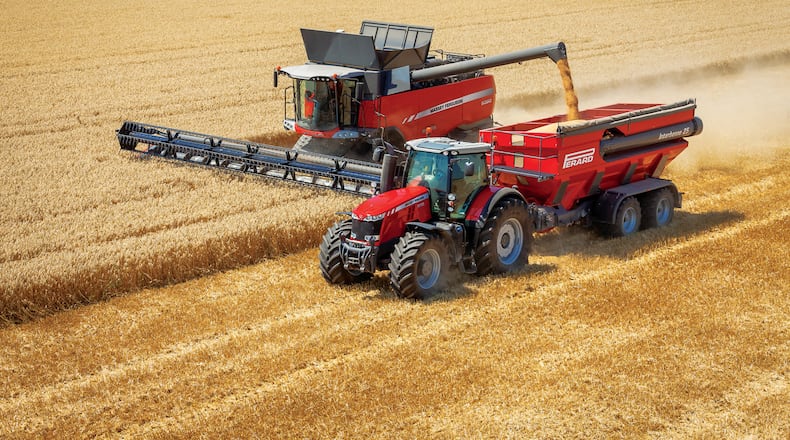The largest shareholder in Duluth-based AGCO has filed a formal complaint about the agricultural machinery maker’s performance in recent years and warned that it may ask other shareholders to make changes, including replacing members of its board of directors.
In a recent filing with the Securities and Exchange Commission, India-based Tractors and Farm Equipment Ltd., also known as TAFE, has asked for a “consent solicitation process,” which could eventually lead to a shareholder vote. With such a move, TAFE could ask shareholders for their approval to dump directors and name replacements outside of AGCO’s normal annual meeting.
TAFE also wants to separate the roles of chief executive and chairman of the board, arguing that the change would make the board more independent. The company has 10 board members. One is Mallika Srinivasan, the chairman and managing director of TAFE.
In the document filed July 24 with the SEC, TAFE said AGCO has been badly mismanaged the past several years, losing money on a number of acquisitions and suffering damage to its stock price. TAFE singled out three AGCO directors for harsh criticism, but stopped short of saying they would be targeted for removal.
AGCO rejected the claims as sour grapes.
AGCO, which has more than 700 employees in Georgia and more than 27,000 worldwide, owns a number of subsidiaries that make agricultural machinery. Last year, the company had revenues of $14.4 billion and net income of $1.7 billion, up from $12.7 billion in sales and $874 million in net income the previous year.
The company currently has a stock value of about $6.6 billion, of which 16.3% is owned by TAFE — a portion worth about $1.1 billion.
Shares of AGCO finished the trading day Tuesday at $86.98 a share, down more than one-third from a 52-week high of $132.62 a share in September. The company’s all-time high came in 2021 when AGCO hit $153.80 a share.
AGCO is one of 18 Fortune 500 companies in the state. The company doesn’t make many headlines, but it is a huge player in agriculture. Its brands include tractor and combine makers Massey Ferguson, Fendt and Valtra. In recent years, AGCO has invested heavily in “precision agriculture” technologies, including involving autonomous equipment and products to improve water and resource management.
The companies have had a relationship going back about 60 years. They have done business with each other and they each own stock in the other.
But in April, AGCO announced it was no longer going to buy TAFE equipment or sell TAFE parts. At the time, AGCO Chief Financial Officer Damon Audia said the business amounted to about $172 million a year, mostly low horsepower tractors.
“We basically got to a point and needed to give them notice that we were going to take a different path to source these low horsepower tractors from a different supplier at some point in time in the future,” Audia told analysts in a conference call. “We felt this was in the best interest of AGCO, our farmers and our dealers to make this change.”
That earlier decision to cancel the business arrangement was the reason for TAFE’s current complaints, AGCO said in a statement. “It is disappointing that TAFE has now chosen to respond by threatening the use of the consent solicitation process in response to this commercial dispute.”
AGCO said in a statement Wednesday it had cut those business ties after “extensive discussions with TAFE over multiple years concerning TAFE’s continued poor operational performance as a supplier, brand licensee and distributor.” But AGCO said it treats that move “as separate from the TAFE investment in AGCO and its representation on AGCO’s Board.”
TAFE said it has “serious concerns” about “calculated and protectionist actions” by three directors. The filing named Chairman and Chief Executive Eric Hansotia, as well as Michael C. Arnold, who heads the board’s governance committee, and Sondra Barbour, who chairs the board’s audit committee. The three have “the potential to further negatively impact AGCO’s operational performance, shareholder returns, and corporate governance,” the TAFE filing said.
AGCO’s “competitive position has deteriorated due to what (TAFE) believes to be a shortsighted operational strategy that does not address structural readiness for the down cycle nor the timely execution of portfolio corrections,” the filing said. “The impact is seen in weak financial performance in core segments versus peers, continuing high costs, and unsuccessful key investments.”
About the Author
Keep Reading
The Latest
Featured




